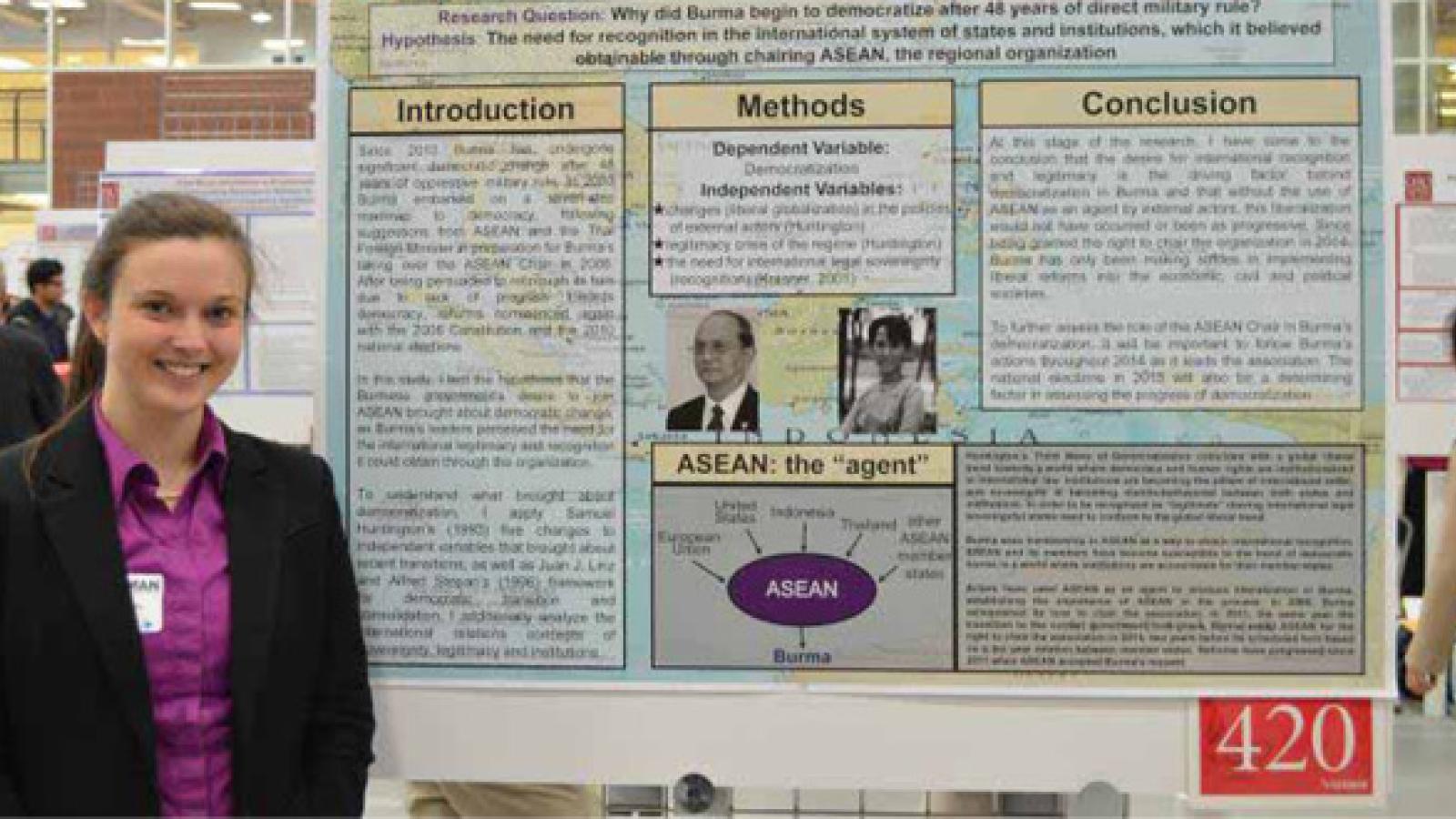ASEAN’s Role in the Democratization of Burma
Presenter: Erin McAuliffe
Advisor: Prof. William Liddle
Since 2010 Burma has undergone significant democratic change after 48 years of oppressive military rule. In 2003 Burma embarked on a sevenstage roadmap to democracy, following suggestions from ASEAN (Association of Southeast Asian Nations), the most important regional association in Southeast Asia, and the Thai foreign minister in preparation for Burma's taking over the ASEAN chair in 2006. After being persuaded to relinquish its turn due to lack of progress towards democracy, reforms commenced again with the Constitution of 2008 and the elections of 2010. In this study, I test the hypothesis that the Burmese government's desire to join ASEAN brought about democratic change, as Burma's leaders perceived the need for the international legitimacy and credibility it could obtain through the association. To better understand what brought about democratization, I apply Samuel Huntington's (1993) five changes to independent variables that brought about recent transitions in other countries, as well as Juan J. Linz and Alfred Stepan's (1996) framework for democratic transition and consolidation. Throughout my research I refer to the Indonesian example of democratization, in order to understand how a country of comparable ethnic diversity and within the same regional context can undergo a similar democratic transition. Although the research is still underway, I have discovered thus far that ASEAN's foreign ministers have been able to persuade Burma to liberalize. Immediately following the 2010 elections, Burma was granted the right to chair the organization in 2014, after relinquishing its turn in 2006, as long as it continues to progress in its democratic reforms. It will be important to follow how Burma progresses, or regresses, in its democratization during its year as Chair. This study will help understand whether and how international factors can open up isolated and undemocratic countries, and the importance that regional organizations may have in the process.

